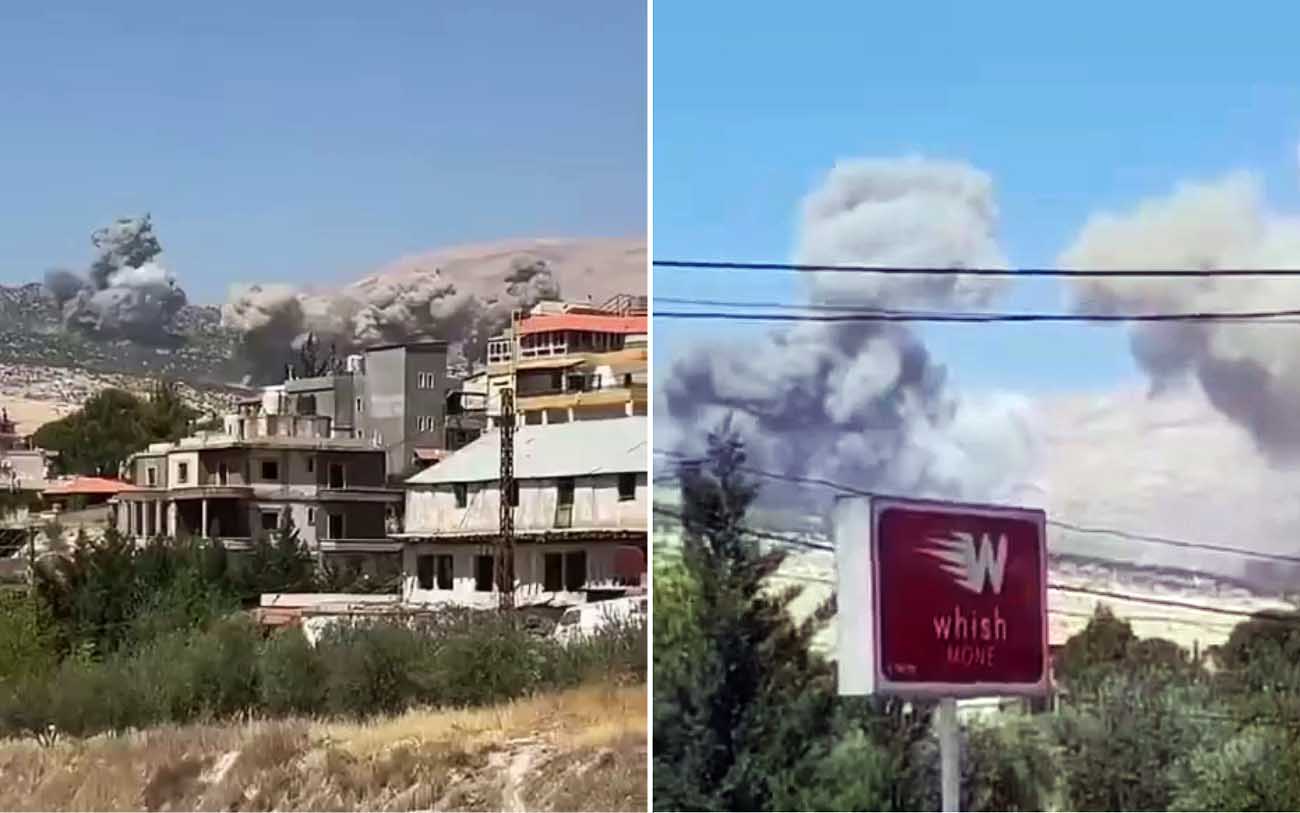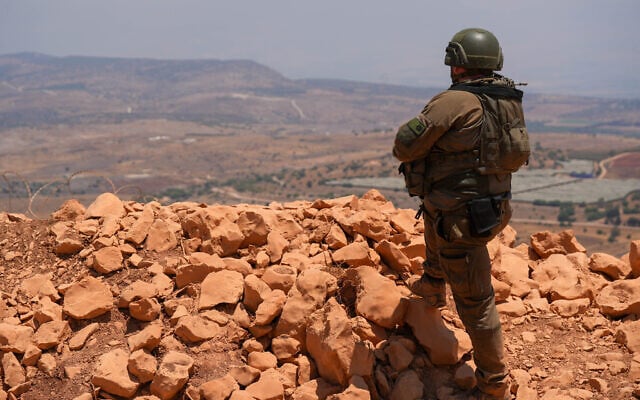



Israeli jets carried out a wave of airstrikes deep inside Lebanon aimed at stopping an elite Hezbollah unit from regrouping and rebuilding its strength, authorities said Tuesday.
The strikes in Lebanon’s northeastern Beqaa Valley were aimed at military facilities belonging to the Hezbollah terror group’s Radwan force, where operatives and weapon depots had been detected, the Israel Defense Forces said.
“The military camps that were targeted are used by the Hezbollah terror organization for training and preparing terrorists for the planning and execution of terror operations against IDF forces and the State of Israel,” the military said in a statement.
The weapons stored at the sites and Hezbollah’s activity “constitute a blatant violation of the understandings between Israel and Lebanon, and pose a future threat to the State of Israel,” the statement added.
Defense Minister Israel Katz called the strikes “a clear message to the Hezbollah terror organization, which is plotting to rebuild its invasion-of-Israel capabilities through the Radwan force, and also to the Lebanese government, which is responsible for upholding the agreement.”
“We will strike every terrorist and thwart any threat to the residents of the north and to the State of Israel, and we will respond with maximum force against any attempt [by Hezbollah] to rebuild,” he added.
Israel has carried out dozens of strikes in southern Lebanon targeting Hezbollah operatives and arms since reaching a ceasefire with the group in November following several weeks of intense fighting, while attacks deeper inside Lebanon are less common.
There was no immediate comment from Lebanon about the Tuesday strikes, though the country’s official National News Agency reported that “enemy warplanes launched a raid” southeast of Baalbek, the main city in the region.
The rugged Beqaa Valley is seen as a stronghold for Hezbollah, and had been considered a key conduit for smuggling weapons into Lebanon via Syria before Hezbollah ally Bashar al-Assad was ousted from the leadership of Syria late last year.
On Sunday, the IDF said Israeli troops had raided military facilities of the deposed Syrian regime last week, seizing some three tons of weapons. It indicated that the arms had been intended to be smuggled into Lebanon.
According to Israel, the Radwan force had in recent years planned to carry out a large-scale invasion of northern Israel, but was forced to shelve the scheme after Hamas attacked southern Israel from Gaza on October 7, 2023, plunging the region into war.
A day after the attack, Hezbollah began firing rockets, drones, and anti-tank missiles at northern Israeli communities, carrying out attacks on a near-daily basis in solidarity with Hamas.
The rocket fire displaced some 60,000 residents of northern Israel. In a bid to ensure their safe return, Israel stepped up operations in Lebanon in September, leading to two months of open warfare with Hezbollah in which the terror group’s leadership and arsenal were decimated.
A ceasefire in November largely stopped the fighting, but Israeli strikes against Hezbollah operatives have continued on a regular basis. The agreement allows Israel to strike imminent threats, though Jerusalem is required to bring less urgent concerns to an international committee.
Hezbollah is currently under pressure from Lebanon’s Western-backed government to disarm as part of an arrangement that could reportedly see Israel halt attacks and pull its troops south of the border.

